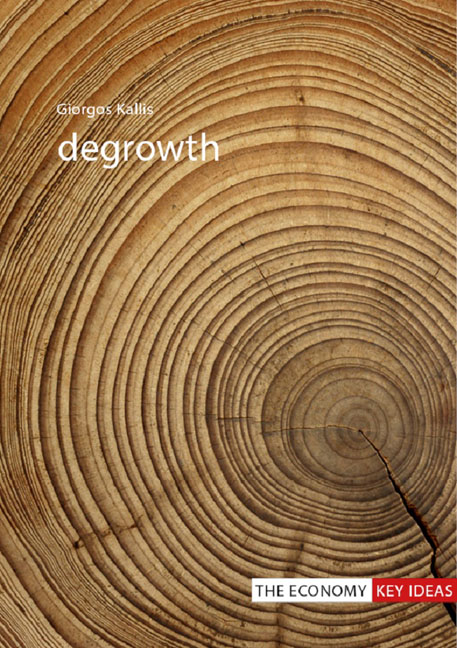1 - What is degrowth?
Published online by Cambridge University Press: 09 August 2023
Summary
A ruthless critique
“I am not proposing a return to the Stone Age. My intent is not reactionary, nor even conservative, but simply subversive. It seems that the utopian imagination is trapped, like capitalism and industrialism and the human population, in a one-way future consisting only of growth. All I’m trying to do is figure out how to put a pig on the tracks.”
— Ursula Le GuinDegrowth is a ruthless critique of the dogma of economic growth – a new keyword: a “pig on the tracks” of “a one-way future consisting only of growth” (Le Guin 1982).
Degrowth is, first, a critique of the ecological consequences of economic growth. The faster we produce and consume goods, the more we transform and damage the environment. There is no way to both have your cake and eat it, here. If humanity is not to destroy the planet’s life support systems, the global economy should slow down. We should extract, produce and consume less, and we should do it all differently. Growth economies collapse without growth. To prosper without growth we have to establish a radically different economic system and way of living.
Second, economic growth is no longer desirable. The costs of growth exceed its benefits. Growth is no longer “economic”. Growth is a recent phenomenon of industrial capitalism. Economists first measured it in the 1930s, and its pursuit became universal only from the 1950s. Civilizations before industrialization flourished without growth and without caring about growth.
Third, growth has always been based on exploitation. Without a surplus, there is no investment and no growth. To have a surplus, capitalists or governments must exploit someone, somewhere. If they paid this someone the real value of her work, then they would not have a surplus and there would be no growth. First there were the slaves, and the natives of the colonies. Then there were the commoners, and the workers in the factories; and there were always the women at home. Growth cannot reduce inequalities; it merely postpones confronting exploitation.
- Type
- Chapter
- Information
- Degrowth , pp. 1 - 14Publisher: Agenda PublishingPrint publication year: 2018
- 1
- Cited by

